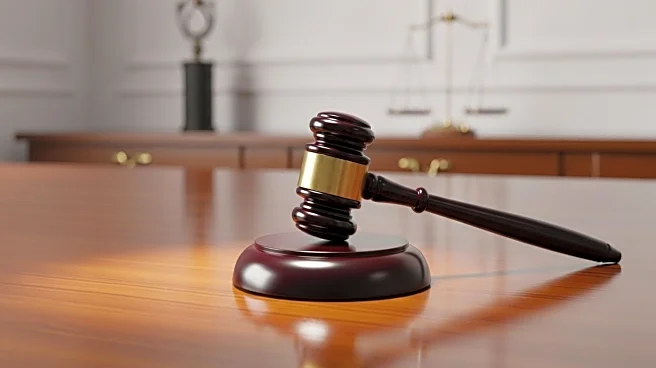What's Happening?
A federal judge in San Francisco has ruled that President Trump's administration unlawfully deployed National Guard troops to Los Angeles in June, following protests over immigration raids. U.S. District Judge Charles Breyer stated that the administration's actions were in violation of federal law, as the troops were used for functions beyond their training and authority. The ruling highlighted concerns about the creation of a national police force under the President's control. Although the judge did not mandate the immediate withdrawal of the remaining 300 soldiers, he ordered the administration to cease using them for law enforcement purposes. The White House plans to appeal the decision, arguing that the judge is overstepping the President's authority to protect American cities.
Why It's Important?
This ruling is significant as it challenges the Trump administration's approach to using military forces for domestic law enforcement, potentially setting a precedent for future deployments. The decision underscores the legal limitations of military involvement in civilian matters, as outlined by the Posse Comitatus Act, which restricts military enforcement of domestic laws. The ruling may influence other states considering legal action against similar deployments, impacting the administration's broader strategy of using military forces in Democratic-led cities. The outcome could affect public policy and civil-military relations, as it raises questions about the balance of power between federal and state authorities.
What's Next?
The administration's appeal of the ruling could lead to further legal battles, potentially reaching higher courts. If the appeal fails, it may limit the President's ability to deploy National Guard troops without state consent, affecting plans for future deployments in cities like Chicago and New York. The ruling may also prompt other states to challenge similar actions, leading to a broader examination of the legal framework governing military involvement in domestic affairs. Political leaders and civil society groups are likely to react, with potential implications for immigration policy and law enforcement practices.
Beyond the Headlines
The ruling highlights deeper issues regarding the militarization of domestic law enforcement and the potential erosion of civil liberties. It raises ethical concerns about the use of military forces in civilian contexts, particularly in response to protests and social unrest. The decision may contribute to ongoing debates about the role of the military in maintaining public order and the potential risks of expanding executive power. Long-term, this case could influence legal interpretations of the Posse Comitatus Act and shape future policies on civil-military relations.









